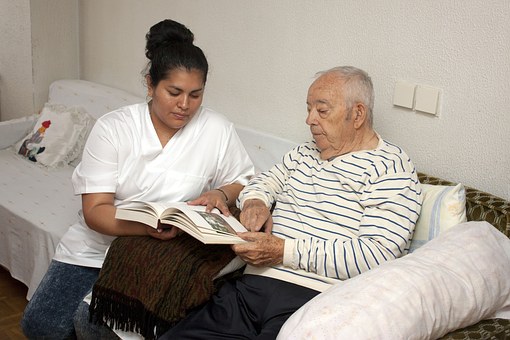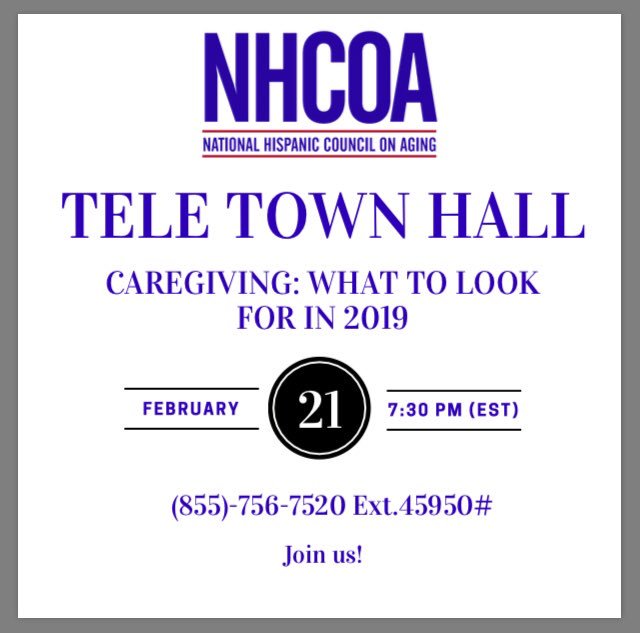
Providing assistance for older generations is a source of great cultural pride within Hispanic communities, and what motivates Hispanics to become caregivers to their older adults is familiarismo, their cultural values that are passed on from generation to generation. However, more than 40% of these caregivers reported feeling stressed and even overwhelmed by the caregiving responsibility.
More than 9 million Latinos, 21% of the estimated 40 million family caregivers in the U.S., are caring for a family member without receiving any type of compensation.
Their average income is $39,000 per year, well below the national average of $54,700. This represents a challenge when they need to balance the many responsibilities of their lives in conjunction with caring for their loved ones.
The National Hispanic Council on Aging (NHCOA) continues to focus on caregiving as the first step in guaranteeing the well-being of the Hispanic older population. We would like to invite you to participate in a one-hour conference call to address the state of caregiving for 2019.

WHEN: Thursday, February 21, 2019 – 7:30 to 8:30 P.M. (EST)
HOW: Call (855)-756-7520 – Ext.45950#
The Caregiving Tele Town Hall will include the following presenters:
- The Recognize, Assist, Include, Support, and Engage (RAISE) Family Caregivers Act: Rhonda Richards, Senior Legislative Representative for Government Affairs at AARP
- Paid Family Leave: Wendy Chun-Hoon, Co-director of Family Values @ Work
- The Rare Disease Caregiving in America Report: Grace Whiting, President and CEO National Alliance for Caregiving
- The unique needs of family caregivers in racially and ethnically diverse communities, American Indian and Alaska Native communities, and LGBT communities: Aaron Tax, SAGE
- State of Caregiving: Alice Liu McCoy, Secretary Designated at New Mexico Aging & Long Term Service Department
- The importance of All of Us Research Program to eliminate health disparities: Christine Perez, NHCOA’s Program & Research Development Associate
About the National Hispanic Council on Aging
The National Hispanic Council on Aging (NHCOA) is the leading national organization working to improve the lives of Hispanic older adults, their families, and their caregivers. Headquartered in Washington, DC, NHCOA has been a strong voice dedicated to promoting, educating, and advocating for research, policy, and practice in the areas of economic security, health, and housing for Hispanic older adults, families, and caregivers for more than 30 years. Learn more at www.nhcoa.org.
The opinions expressed in this article are those of the author and do not necessarily reflect those of the Diverse Elders Coalition.
